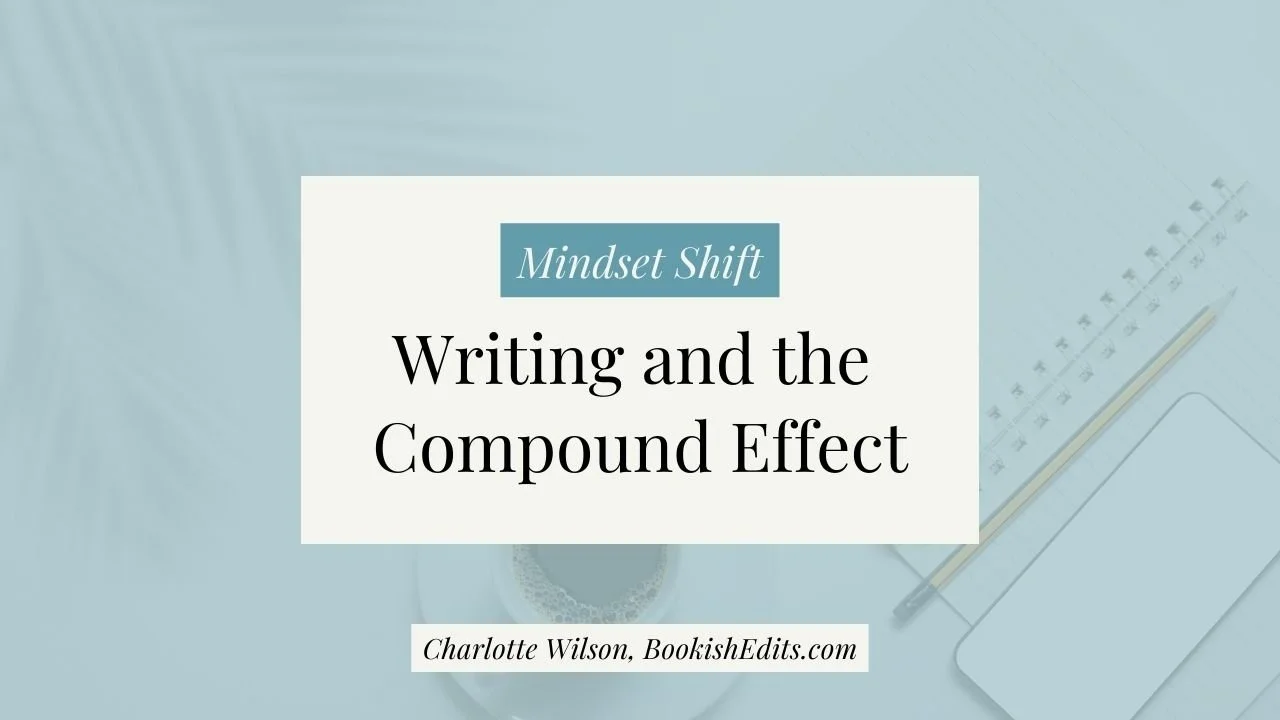Writing and the Compound Effect
Raise your hand if you’ve convinced yourself at any point that your writing time is valid only if you can devote several hours at a time. (Same, friend. Same.)
Would you believe me if I told you that you’re much more likely to write your memoir if you start out with shorter writing sessions? Let me prove it to you.
The compound effect
The compound effect is an idea explored by Darren Hardy in his book The Compound Effect. This concept is simple: We can reap massive rewards from a series of small, smart actions. (It’s the tortoise and the hare situation playing out. Small and steady > Erratic and intense.)
We can see the compound effect play out in everything from exercise and finance to learning new hobbies and building a business. We can even apply the compound effect to writing.
Your writing can benefit from the compound effect
I meet with so many writers who are filled with excitement and motivation, who also think that they need to have all their ducks lined up before really starting. They think that they have to be able to devote hours at a time to their writing, and because that’s such a big and overwhelming task, they don’t usually get very far. These writers let the supposed “rules” stop them from making any progress.
Here’s the secret: You can’t edit a blank page—so write.
Let’s play this out a bit further:
If you write 500 words a day (that’s about two pages double-spaced, so not so much), you can finish the first draft of a 65K-word memoir in about four months.
Imagine: Starting and finishing your first draft in just four months.
That’s the power of the compound effect. And the fun part of applying the compound effect in your writing is that sometimes, you’ll have a breakthrough and be even more inspired to go beyond that 500 words. Some days you might double, triple, or even quadruple that word count!
Now imagine that you start from the goal of finishing your first draft in four months. That sounds like a big deal (it is!), and on its own it’s too big to tackle. We have to make it smaller, and that’s what makes the compound effect so powerful. Small action steps lead to mind-blowing progress.
The role of editorial thinking
Want to make the compound effect even more impactful? Learn how to think like an editor.
An editorial lens is powerful because of its objectivity. Thinking like an editor means pulling yourself out the story and into the driver’s seat. With an editorial lens, you can see your manuscript as a project with moving parts, and you can start to think strategically about your story and writing process.
Entering daily writing sessions (however long or short) with editorial mindsets at hand allows you to make the most of your writing time. You’ll spend your precious time writing content that will actually move your manuscript forward, rather than spinning in circles.
The combination of mindset strategies and consistent action will take your memoir from a dream to a reality.
If you liked this post, you’ll enjoy this podcast episode that deepens the conversation on writing and the compound effect.
If this concept of mindset + action resonates with you, you’ll want to join the Speedway (if enrollment currently is closed, you’ll be able to hop on the waitlist!).


